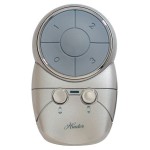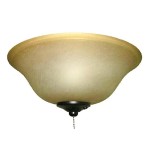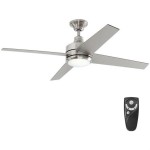Essential Aspects of Best Ceiling Light Design
When designing a thoughtful and cohesive space, ceiling lights play a pivotal role in illuminating your surroundings and setting the ambiance. To achieve optimal results, it's essential to consider the fundamental aspects of ceiling light design, encompassing factors such as functionality, style, and technical capabilities. This comprehensive guide explores the key elements that contribute to the creation of exceptional ceiling light designs.
## FunctionalityThe primary function of ceiling lights is to provide adequate illumination. Consider the intended purpose of the room and its lighting requirements. Choose lights with appropriate brightness and color temperature to ensure optimal visual comfort and task visibility. Adequate light distribution is also crucial, preventing glare and dark spots.
## StyleCeiling lights contribute significantly to the overall aesthetic of a space. Select designs that complement your decor and personal taste. Consider the shape, size, and finish to create a cohesive and visually appealing ambiance. Explore a wide array of styles, from contemporary to traditional, to find the perfect fit for your space.
## Technical CapabilitiesTechnical aspects are paramount for optimal performance and energy efficiency. Choose lights with appropriate wattage, voltage, and beam angle to meet your specific needs. Consider the type of light source, such as LED, incandescent, or fluorescent, based on factors like longevity, energy consumption, and color rendering.
## Type of CeilingThe type of ceiling in your space will influence the choice of ceiling light design. For flat ceilings, recessed or flush-mount lights can create a seamless and contemporary look. For vaulted or sloped ceilings, pendant or track lights may be more suitable to accommodate the unique angles and provide adequate illumination.
## Room SizeThe size of the room is crucial in determining the appropriate size and number of ceiling lights. For larger rooms, opt for multiple light fixtures or lights with increased wattage to ensure sufficient brightness. In smaller rooms, smaller lights or fewer fixtures may be more appropriate.
## Color Temperature and BrightnessColor temperature refers to the warmth or coolness of light, measured in Kelvins (K). Choose a color temperature that complements the ambiance you wish to create. Warmer colors (2700-3000K) create a cozy and inviting atmosphere, while cooler colors (4000-5000K) promote alertness and focus.
## Additional FeaturesSome ceiling lights offer additional features to enhance functionality and convenience. Consider lights with dimmable capabilities to adjust the brightness level as desired. Motion sensors can automatically turn lights on and off, providing added security and energy savings. Remote control options allow for convenient operation from a distance.
## ConclusionBy carefully considering these essential aspects of ceiling light design, you can create a well-lit and visually appealing space that meets your specific needs and preferences. Whether it's for functional illumination, stylish decor, or advanced technical capabilities, incorporating these elements into your design process will ensure an optimal ceiling lighting solution.

A Comprehensive Guide To The Best Ceiling Lights Designs For Your Home

A Comprehensive Guide To The Best Ceiling Lights Designs For Your Home

3 Best False Ceiling Lights You Can Use To Create Better Ambience

9 Types Of False Ceiling Light Designs To Glam Up Your Home

45 Small Living Room Ceiling Lights Types Benefits More

A Comprehensive Guide To The Best Ceiling Lights Designs For Your Home

Ceiling Light Designs For Your Home Decorative Lights

45 Small Living Room Ceiling Lights Types Benefits More

9 Types Of False Ceiling Light Designs To Glam Up Your Home

A Comprehensive Guide To The Best Ceiling Lights Designs For Your Home
Related Posts








